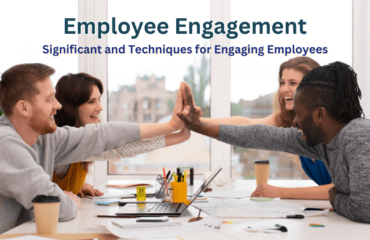It might be challenging to navigate the employment landscape. When phrases like “Employee Moonlighting” are used, it’s critical to comprehend what they represent and what they entail. This thorough guide looks into the world of employee moonlighting, illuminating its many sides and importance to your company.
Employee Moonlighting: What is it?
Employee moonlighting is the practice of taking on supplementary employment in addition to one’s regular job. If they don’t jeopardise the duties of their principal job, this can happen after-hours, on the weekends, or even during their regular working hours.
Various Forms of Moonlighting
There is no one-size-fits-all approach to moonlighting. It may show up in several ways:
Parallel moonlighting: When a worker holds down a second job in a position or industry related to their primary one.
Similar Moonlighting: Working a job that has absolutely nothing to do with your primary profession.
Freelance moonlighting: An additional work that is project-based and frequently self-driven.
Moonlighting as an entrepreneur is when an employee launches their side venture.
Reasons Why Some People Choose to Moonlight
An individual may choose to moonlight for a variety of reasons, including:
The most frequent explanation is financial necessity. Additional revenue might be used to pay off debt or cover increased costs.
An opportunity to acquire new talents or improve existing ones.
Pursuing Passions is making a living out of one’s interests or pursuits.
Job security is having a backup plan in place in case the primary position becomes questionable.
Moonlighting Is It Moral?
The morality of moonlighting relies on several factors:
Conflict of Interest: It might be immoral to hold a second job if it interferes with your primary work.
Performance at Primary Job: It raises ethical concerns if moonlighting affects attendance or performance at the primary job.
Confidentiality: It is immoral to share or use confidential information from one employee at another.
Company Policy: Moonlighting would be against the company’s policies if the principal employer’s Employee Moonlighting Policy forbids it.
Exactly what does it mean for your company?
Businesses must comprehend employee moonlighting because:
Moonlighting could cause weariness, which could impair an employee’s performance at their primary job, raising concerns about productivity.
Employees may unintentionally divulge confidential firm information or business strategy due to conflicts of interest.
Talent Retention: If many employees are working additional jobs, it may be an indication of low pay or a lack of job satisfaction, which could result in a greater turnover rate.
Considerable Case Studies for Smart Recruiters
Worker moonlighting refers to the practice of holding multiple jobs at once, often without the primary employer’s knowledge. It can have various implications for companies, ranging from conflicts of interest to overworked employees. Here are five case studies that explore different facets of moonlighting and its impact on businesses.
Case Study 1: The Dual-Industry Employee
John, an IT professional, took up a second job as a freelance graphic designer. His primary employer, an IT firm, had strict policies against moonlighting, fearing a decline in productivity and potential data breaches. However, John managed to balance both roles without compromising his performance at the IT firm. When the employer discovered John’s freelance work, they decided to reevaluate their moonlighting policy, recognizing the potential for skill enhancement that could benefit the company.
Case Study 2: The Overworked Teacher
Sarah, a full-time high school teacher, started working evenings at a tutoring center to supplement her income. Gradually, her performance at school began to deteriorate. She was less engaged, and her students’ grades started to fall. Upon learning of her second job, the school had to address the issue. They offered financial counseling and a salary advance option for teachers in financial need, aiming to prevent the negative impacts of moonlighting.
Case Study 3: The Start-up Innovator
Alex, an engineer at a tech start-up, also worked on his start-up project after hours. His moonlighting was driven by a passion for entrepreneurship rather than financial need. When his employer found out, they recognized Alex’s entrepreneurial spirit and decided to incubate his project. This partnership not only retained a valuable employee but also brought innovative ideas into the company’s fold.
Case Study 4: The Conflict of Interest
Linda, a marketing executive, took a freelance marketing consultant role with a company that was a direct competitor of her full-time employer. When her moonlighting was uncovered, it raised serious concerns about conflict of interest and loyalty. The situation led to her dismissal and prompted the company to implement more stringent conflict-of-interest policies.
Case Study 5: The Policy Shifter
Mike, a software developer, worked after hours as a personal fitness trainer. His primary employer had no policy against moonlighting, assuming it wouldn’t affect job performance. However, when several employees began taking second jobs, a noticeable drop in energy and an increase in absenteeism were observed. The company decided to create a flexible moonlighting policy, requiring employees to disclose secondary employment and prohibiting work in related industries.
These case studies illustrate that moonlighting is a multifaceted issue. Companies must navigate the thin line between respecting employees’ rights to personal time and ensuring that their business interests are not compromised. A well-considered moonlighting policy can help companies manage the challenges and opportunities presented by employee moonlighting.
Conclusion
Although many people choose not to moonlight, employers must have a clear employee moonlighting policy in place. This guarantees that the business’s interests are safeguarded while allowing employees the ability to earn and develop.
FAQs
Is doing a second job illegal in India?
Moonlighting is not prohibited in India, but some employers may have restrictions.
What does the term “moonlighting” mean?
Moonlighting refers to doing a second job in addition to one’s regular job.
In TCS, what is moonlighting?
It would depend on TCS’s corporate policies, however moonlighting in the context of TCS refers to TCS personnel taking on other occupations.
Does Capgemini permit side jobs?
The company policy of Capgemini, which workers should consult, would serve as the basis for the company’s position on moonlighting.
Does TCS permit side jobs?
Employees at TCS should check with HR or their company’s policies to find out if moonlighting is allowed.




